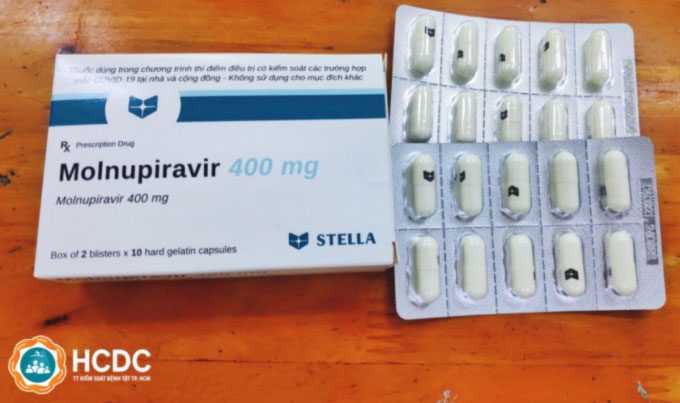If infected with the Omicron variant, you need to follow local health guidelines, proactively isolate, and monitor your health.
Dr. Nguyen Hong Ha (Vice President of the Vietnam Infectious Diseases Society) stated that no rapid test or RT-PCR can determine which variant of Covid-19 a person is infected with. Therefore, if there are epidemiological factors or suspicion of infection with this variant, it is essential to report immediately to local health authorities for appropriate handling.
While waiting for healthcare staff, you should actively self-isolate at home, limiting contact with other family members, especially the elderly, those with underlying health conditions, and unvaccinated children. Close contacts (F1) should undergo Covid-19 testing every three days for 14 days and self-monitor clinical symptoms such as cough, fever, sore throat, and difficulty breathing. If the test result is positive for Covid-19, the patient will have samples taken for virus genome sequencing.
“If you are infected with Omicron, there is no need to worry too much, as this variant is less severe and has a lower mortality rate than the Delta variant,” Dr. Ha said.
Dr. Tran Quang Binh (Director of Professional Affairs at Tam Anh General Hospital in Ho Chi Minh City, former head of the Tropical Diseases Department at Cho Ray Hospital) mentioned that the treatment protocols for Omicron F0 cases are no different from previous variants. Children who unfortunately contract the virus also recover quickly and rarely experience complications. To recover safely, patients must strictly adhere to the guidelines provided by healthcare staff.
The high-risk group (those over 65 years old or with underlying health conditions) infected with Omicron do not necessarily need to be treated in field hospitals or centralized isolation facilities. Dr. Ha analyzed that the most crucial aspect is to screen and detect early those who have been in contact with the source of infection for screening tests and diagnosis. Once a positive case is identified, asymptomatic F0 individuals should be provided with antiviral medications (such as molnupiravir, favipiravir…) for early use to prevent the virus from replicating in their bodies. This way, patients can safely overcome Covid-19 at home, minimizing the risk of hospitalization, severe complications requiring intensive care (ICU), or death, thereby reducing the burden on the healthcare system.
If patients exhibit clinical symptoms such as significant fatigue, high fever, chest pain, difficulty breathing, or SpO2 (blood oxygen saturation) levels dropping below 95%, they need to go to a healthcare facility for timely treatment.

Antiviral medication molnupiravir is provided free of charge to F0 patients for Covid-19 treatment. (Photo: Ho Chi Minh City Disease Control Center (HCDC))
According to Dr. Ha, the Omicron variant is not as dangerous as Delta, but the viral load in the upper respiratory tract (nose, throat, and trachea) is high, leading to faster transmission rates. If the number of infections rises quickly, the number of severe cases will also increase. Therefore, the public should not be complacent, and the health sector must prepare in terms of spirit and equipment to respond to medical treatment for patients who become severe, such as hospital beds, oxygen, and antiviral medications.
Doctors recommend that high-risk groups should complete all doses of Covid-19 vaccines, especially the third dose (booster and supplementary), while strictly following the 5K guidelines; family members should take precautions to prevent Covid-19 transmission to them.



















































